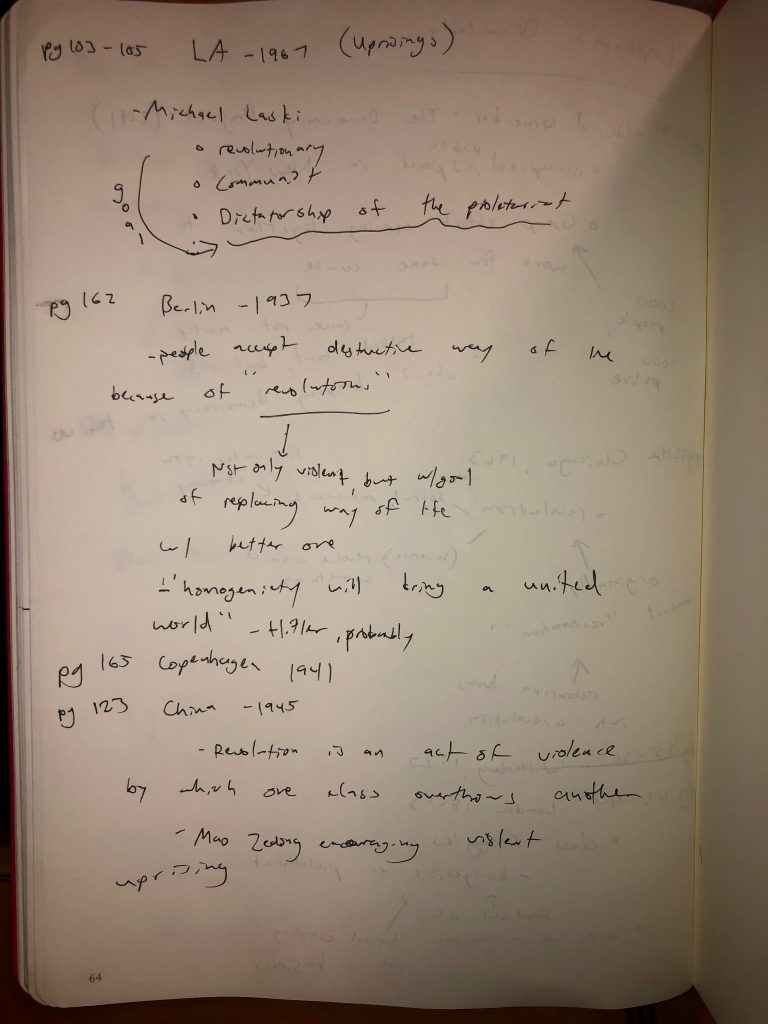- Society
- Change
- Equality
- Conflict
- Violence
From Professor Quillen’s first unit, we are introduced with ideas that were revolutionary in their time. For example, Locke believed that parental power is greater than paternal power. He’s acknowledging the presence of the female sex, which was a revolutionary idea back then. Women weren’t equal to men, but here, Locke is recognizing that there is at least some power in women. Professor Quillen described this as “making a crack in the door that is equality amongst women.” These ideas are ones that’ll spark a revolution.

Unit 2 was filled with definitions of revolution. Professor Robb chose to focus on science more than other Professors. Professor Thompson from the Physics department talked about revolution in terms of physical revolutions. In this unit, we read Lapham’s Quarterly on the different revolutions throughout history. In one instance, Mao Zedong defined revolution as an act of violence by which one class overthrows another. Revolution was also defined as a peaceful restoration. We can see the different interpretations of the word revolution and how each interpretation affected the society it pertained to.

Professor Tamura’s unit shifted the light of revolution to genocide and uprisings that root from political discourse. Specifically speaking of the Rwandan genocide, despite the minor physical distinctions, the Hutu’s still felt the need to start a violent uprising against the Tutsi’s. This was an example of a revolution, in the most violent sense of the word. In this case, we witnessed a revolution that was sparked by the disparity between two social classes. This had a similar theme with Professor Wills’ unit about the Civil Rights Movement.
The Civil Rights Movement was a revolution that started to allow equality between black and white people. Somewhat similar to the Rwandan genocide, this revolution started from one group of people oppressing another group of people for no reason other than the color of their skin. When taking into account all of these examples of revolutions, we can start to form a definition. In the context of humanities, a revolution is a social movement with the intention of altering society to either increase or decrease a group’s power.